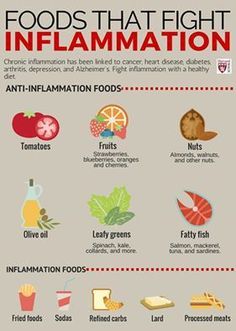Inflammation is a natural response by our body to fight off infections and promote healing. However, chronic inflammation can lead to various health issues, including cardiovascular diseases, arthritis, and even cancer. One effective way to combat inflammation is through adopting an anti-inflammatory diet. In this article, we will explore the concept of anti-inflammatory diets and discover the foods that can naturally fight inflammation.
Understanding Inflammation
Before delving into the details of an anti-inflammatory diet, let’s first understand what inflammation is. Inflammation is the body’s immune response to various stimuli, such as injuries, infections, or irritants. When the body detects an issue, it triggers the release of chemicals and white blood cells to protect and repair the affected area. Acute inflammation is a normal and vital part of the body’s immune system. However, chronic inflammation can be harmful to our health.
The Role of Diet in Inflammation
Several studies have shown a strong connection between diet and inflammation. Certain foods can trigger or worsen inflammation, while others have anti-inflammatory properties. By incorporating more anti-inflammatory foods in your diet, you can potentially reduce chronic inflammation and improve your overall well-being.
Key Components of an Anti-Inflammatory Diet
An anti-inflammatory diet primarily focuses on whole, nutrient-rich foods while avoiding processed and unhealthy options. Here are the key components of an anti-inflammatory diet:
1. Fruits and Vegetables
Nature’s bounty, fruits, and vegetables are abundant in antioxidants, vitamins, and minerals that can combat inflammation. Berries, leafy greens, oranges, and cherries are particularly rich in anti-inflammatory compounds.
2. Healthy Fats
Incorporating healthy fats, such as those found in avocados, olive oil, and fatty fish (like salmon), can help reduce inflammation. These fats contain omega-3 fatty acids, which have a powerful anti-inflammatory effect on the body.
3. Whole Grains
Instead of refined grains, opt for whole grains like brown rice, quinoa, and whole wheat bread. These provide essential nutrients and fiber, which can help regulate inflammation in the body.
4. Legumes and Nuts
Legumes (such as beans and lentils) and nuts (like almonds and walnuts) are excellent sources of protein, fiber, and healthy fats. They can help fight inflammation and promote overall health.
5. Herbs and Spices
Adding herbs and spices like turmeric, ginger, garlic, cinnamon, and cayenne pepper to your dishes can provide additional anti-inflammatory benefits. These ingredients contain compounds that have been shown to reduce inflammation and improve immune function.
Foods to Avoid
While adopting an anti-inflammatory diet, it’s essential to steer clear of foods that can promote inflammation. These include:
1. Processed Foods
Highly processed foods, such as fast food, sugary snacks, and sodas, often contain additives, unhealthy fats, and refined sugars that can trigger inflammation in the body.
2. Trans Fats
Foods that are high in trans fats, such as fried foods, margarine, and processed snacks, have been linked to increased inflammation and various health problems.
3. Excessive Sugar
Excessive consumption of refined sugars can lead to weight gain, obesity, and chronic inflammation. Reducing your intake of sugary foods and beverages can help lower inflammation levels.
Conclusion
An anti-inflammatory diet can play a crucial role in reducing chronic inflammation and promoting better overall health. By incorporating a wide variety of fruits, vegetables, healthy fats, whole grains, legumes, and spices into your meals, you can naturally fight inflammation and support your body’s healing process. Remember to avoid processed and sugary foods that can exacerbate inflammation. Making these dietary adjustments, along with other healthy lifestyle choices, can contribute significantly to a healthier, inflammation-free life.
